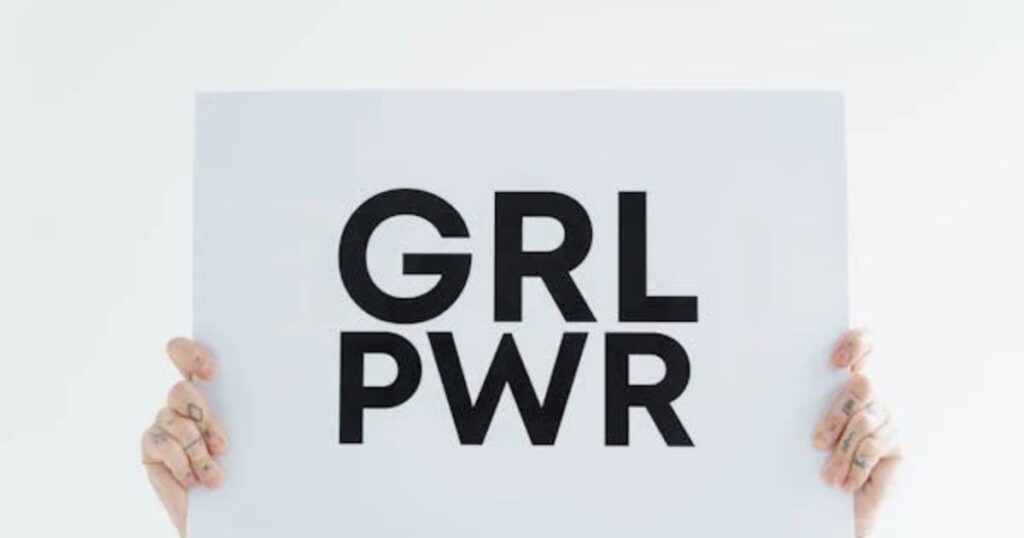
Feminism is a movement that advocates for gender equality, aiming to create a society where men and women have equal opportunities and rights. While many men support feminism and its goals, others express resistance or outright opposition. This raises an important question: why do some men oppose a movement that promotes fairness for all?
The answer is not straightforward. Men’s opposition to feminism often stems from misunderstandings, societal norms, fear of change, or feelings of exclusion. In this article, we will explore the reasons behind this resistance, clarify common misconceptions, and discuss how to foster greater understanding and collaboration between genders.
What Is Feminism?
you canolso raed :
Feminism: Is It For or Against Women?

Before diving into why some men oppose feminism, it’s essential to define what feminism stands for and what it aims to achieve.
Feminism advocates for equal rights and opportunities for all genders. It seeks to dismantle systems that perpetuate inequality, including gender stereotypes and discrimination. Feminism is not about putting women above men; rather, it aims to ensure that everyone, regardless of gender, has the freedom to pursue their goals and live without bias or restrictions.
Transition Tip: While the goals of feminism seem clear, misunderstandings about its purpose often lead to resistance.
Reasons Why Some Men Oppose Feminism
There are several reasons why men may resist or oppose feminism. These reasons are often rooted in misconceptions, cultural influences, and personal fears. Let’s examine these factors in detail.
1. Misunderstanding What Feminism Is
One of the most common reasons for men’s opposition to feminism is a lack of understanding about its purpose.
Many men believe feminism is about prioritizing women’s rights at the expense of men’s. They may feel that feminists blame men for all societal problems or that the movement seeks to diminish men’s roles in society.
In reality, feminism challenges systems of oppression that harm both men and women. For example, rigid gender roles negatively affect men by pressuring them to conform to ideals of toughness and dominance.
Key Point: Feminism benefits men as well by breaking down harmful stereotypes that limit everyone’s potential.
2. Fear of Losing Privilege Men Oppose Feminism
In many societies, men have historically held positions of power and influence. Feminism challenges these structures by advocating for equal opportunities in leadership, education, and employment.
This shift can feel threatening to some men, as they fear losing privileges they may not even realize they have. For instance, efforts to promote women in leadership roles might be perceived as taking opportunities away from men.
Example: Some men may feel excluded by affirmative action policies designed to create fairness for women in male-dominated fields.
Transition Tip: Emphasizing that equality benefits everyone, not just women, can help address these fears.
3. Cultural and Traditional Influences

Cultural norms and traditional gender roles play a significant role in shaping attitudes toward feminism.
In many cultures, men are expected to be providers, protectors, and decision-makers, while women are seen as caregivers. Feminism challenges these roles, advocating for shared responsibilities and equal partnerships.
For some men, this feels like a rejection of the values they were raised with. However, breaking free from rigid gender roles allows individuals to live authentically, choosing paths that align with their strengths and interests.
Key Insight: Addressing these cultural influences with empathy can help bridge the gap between traditional expectations and modern ideals.
4. Resistance to Change
Change can be uncomfortable, and feminism demands significant shifts in societal structures and personal behaviors.
Feminism encourages men to embrace vulnerability, share caregiving responsibilities, and reject toxic masculinity. For some men, these changes feel like an attack on their identity or way of life.
However, change is necessary for progress. Feminism creates opportunities for men to redefine masculinity in healthier and more fulfilling ways, allowing them to express emotions and build stronger relationships.
5. Perception of Exclusion
Some men feel excluded or overlooked by feminism. They argue that the movement focuses only on women’s issues and neglects challenges faced by men, such as:
- Mental health stigma.
- Higher rates of workplace injuries and deaths.
- Unfair treatment in custody battles.
This perception can lead to resentment and resistance. However, feminism does address these issues by challenging societal norms that harm both men and women. For example, by advocating for emotional expression and vulnerability, feminism helps men overcome the stigma surrounding mental health.
Transition Tip: Including men’s issues in feminist conversations can create a more inclusive movement.
6. Media Misrepresentation
The way feminism is portrayed in the media often fuels opposition.
Some media outlets highlight extreme or radical viewpoints, painting feminism as a hostile or divisive movement. This one-sided portrayal alienates men and reinforces negative stereotypes about feminists.
In reality, most feminists advocate for collaboration and mutual understanding between genders, not division. Highlighting positive examples of feminism, such as initiatives that support fathers’ rights or promote healthy relationships, can help combat these misconceptions.
7. Toxic Masculinity
Toxic masculinity refers to societal expectations that pressure men to conform to rigid ideas of strength, dominance, and stoicism.
Feminism challenges these norms by encouraging healthier expressions of masculinity. However, for some men, this feels uncomfortable because it contradicts what they have been taught.
Toxic masculinity harms men by limiting their emotional range and placing unrealistic expectations on their behavior. Feminism offers an opportunity to redefine masculinity in a way that is more balanced and fulfilling.
8. Fear of Judgment
Some men fear being judged or ridiculed for supporting feminism. This fear often stems from societal pressures to conform to traditional gender roles.
By creating safe spaces for dialogue and emphasizing the benefits of feminism for men, these fears can be alleviated.
Key Point: Supporting feminism is not a rejection of masculinity—it’s a commitment to fairness and equality.
9. Misconception About Traditional Roles
Some men believe feminism devalues traditional roles, such as being a stay-at-home mother or a male provider.
In reality, feminism supports the freedom to choose any role, whether traditional or non-traditional. It advocates for a world where individuals can make decisions based on their preferences and abilities, not societal expectations.
10. Polarization and “Us vs. Them” Mentality
The debate around feminism is often framed as a battle between genders, creating unnecessary divisions.
This adversarial approach makes it difficult for men and women to work together toward common goals. Shifting the narrative from conflict to collaboration fosters greater understanding and support.
How to Address Men’s Concerns About Feminism

To reduce opposition to feminism, it’s essential to address men’s concerns and create a more inclusive movement.
- Promote Education: Encourage honest conversations about what feminism stands for and how it benefits everyone.
- Include Men’s Issues: Acknowledge challenges men face, such as mental health stigma or custody battles, to create a more inclusive dialogue.
- Focus on Collaboration: Frame feminism as a partnership between genders, working together to create a fairer society.
Benefits of Feminism for Men
While feminism primarily focuses on addressing inequalities faced by women, it also brings significant benefits to men.
- Healthier Relationships: Feminism promotes mutual respect and equality, leading to stronger, healthier partnerships.
- Freedom from Stereotypes: By challenging traditional gender roles, feminism allows men to express their emotions and pursue non-traditional careers.
- Fair Workplaces: Feminism advocates for policies like parental leave, which support both men and women in balancing work and family life.
Key Insight: Recognizing these benefits can help men see feminism as an opportunity, not a threat.
Conclusion
Men’s opposition to feminism often stems from misunderstandings, fear of change, and cultural influences. By addressing these concerns through education, inclusion, and collaboration, we can bridge the gap and create a society that values equality and mutual respect.
Feminism is not about taking away rights or opportunities from men—it’s about building a world where everyone can thrive. Encouraging open conversations and highlighting the benefits of feminism for all genders can help foster a more inclusive and supportive movement.



